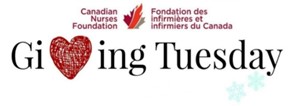Extendicare Masters in Gerontology Award
As cliché as it sounds, I became a nurse so I could help people. Nursing opened a world where people trusted me to help them in their most vulnerable moments and I realized what a profound impact I could have on the lives of my patients. They’ve taught me the value of listening more than I speak, and they’ve motivated me to pursue lifelong learning. Understanding how to better support families as they grieve the loss of a loved one or how to simply be with patients while they grieve a version of their healthier selves is a truly humbling experience.
Only after suddenly losing my Dad a few short years ago did I discover the meaning of grief and it profoundly shaped my research. He wasn’t sick, it wasn’t expected, he just died. My experience with traumatic grief drew me into conducting research on grief and loss, and it introduced me to a topic called “disenfranchised grief”. It details how those who are grieving feel the need to internalize their grief when it feels like others don’t recognize it as a “reason to grieve”. Whether it is because a death wasn’t recent, the loss of independence, the loss of a functional body – it’s all grief. Aging is an unknown and often isolating experience that no individual can ever prepare for, particularly in a continuing care setting. By better understanding grief and supporting the mental health of seniors, I hope to normalize feelings of grief however they may occur.


